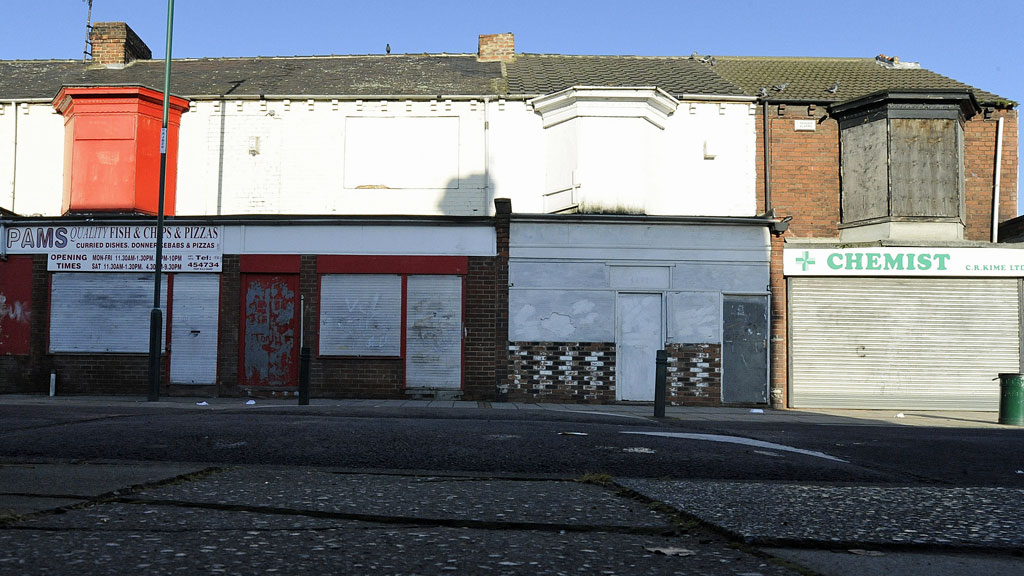Call for government action to save the high street
The government has been called on to freeze business rates and cut fuel duty to restore consumer confidence as Comet becomes the latest high street retailer to go to the wall.

The electrical goods chain is the latest in a growing list of big name retailers that have gone bust as the high street continues to struggle.
Reacting to Comet’s difficulties the British Retail Consortium (BRC) has highlighted the need to ease the pressure on retailers and get people back on the high street.
The newly formed Distressed Retail Property Taskforce brings together banks and retail groups, including the BRC, to find ways to rejuvenate towns and save the retail industry.
Read more: Comet to be placed into administration
Daniel Morgan from the BRC explained that the taskforce will “improve understanding” between retailers and banks, which is vital to the future of the high street.
“Retailers are squeezed with a drop in sales and rising business costs, one of the last things they need is a rates increase,” he stated.
” We need to support consumer confidence and encourage spending by reducing fuel duty.”
“At this early stage I can’t say if the Retail Taskforce will get the right conclusions but it is a step in the right direction.”
The taskforce was formed after a review by retail expert Mary Portas and is undertaking a study to find the barriers to the vitality of town centres.
The taskforce includes state owned banks Lloyds and RBS and the British Council of Shopping Centres, Royal Institution of Chartered Surveyors, British Retail Consortium and the Investment Property Forum.
Comet’s collapse is one of the biggest since Woolworths closed in 2008, and comes just one month after the failure of JJB Sports.
Last year 5,268 shops were closed by major retailers and only 5,094 opened, while an estimated 48,000 shops are now believed to be left vacant.
Year of closures
In January, Peacocks which had 563 stores collapse under a debt mountain placing 7,500 jobs in jeopardy. Lingerie chain La Senza went into administration in the same month.
Barratts also called in administrators, who said a deal had been agreed to save most of the shoe chain at the cost of some 680 jobs.
In March video game retailer Game closed 277 stores as they went into administration leaving over 2000 employees out of work.
Just nine Allied Carpets stores were saved in April – the retailer once had over 200 shops and 1,000 staff, but went bust for the third time in three years.
A month later administrators announced Clinton Cards had fallen into administration with 397 stores sold to Ohio-based American Greetings.
Struggling high street giants Argos have scrapped their trademark catalogue in a bid to reinvent themselves as a digital retailer, the move could see 75 store closures or relocations.
Fashion and homewares retailer Next recently reported a “volatile” sales performance in their third quarter report.
Bucking the trend Debenhams have announced plans to open 17 new stores and create 1,700 jobs, the company stated that it did not expect a significant change to the economy in 2013.
A report by BIRA, the independent retailers body, has claimed that business is not improving for embattled retailers.
Only 36.46 per cent of respondents to BIRA’s survey reported a higher business performance compared to the same quarter last year.
A report into growth strategies launched by Lord Heseltine this week called for a “war psychology” to overcome the economic crisis.
-
Latest news
-
As India goes to the polls in the world’s largest election – what do British-Indians think?6m

-
Tees Valley: Meet the candidates in one of the biggest contests coming up in May’s local elections4m

-
Keir Starmer says public sector reform will be a struggle7m

-
Nicola Sturgeon’s husband Peter Murrell charged with embezzlement of funds from SNP1m

-
Ukraine might finally get $60billion in American weapons and assistance to defend against Russia3m

-





